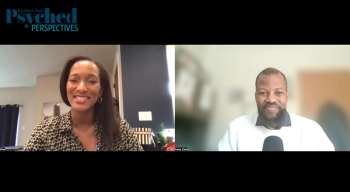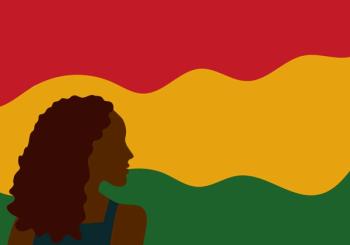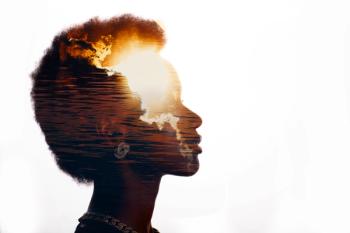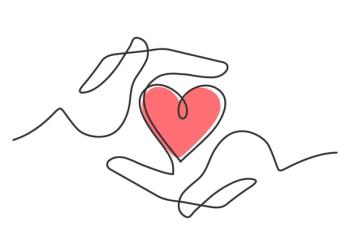
May We Never Forget
Black history is American history and world history.
BLACK HISTORY MONTH
In honor of Black History Month, we asked clinicians to share their thoughts on Black history and the contributions of Black Americans to the psychiatric field and beyond. Here’s how they answered.
Never forget, because we cannot and should not forget. Black history is American history and world history—and whether our eyes are open to it or not, history repeats itself daily.
As we raise our children in places and spaces where they are often the only Black individuals, we make consistent efforts to lead by example and show them all the positive affirming images of who they are and who they can be in this world. I look at their beautiful faces, and think of all I want to teach them, all I want them to understand in due time—and all the world brings to their consciousness before we may be ready.
Once, in 2020 before the pandemic, I asked the director of the private preschool where one of my children was in attendance if they would be celebrating Black History Month. Her response? “No. We don’t want the kids to start seeing themselves as different. We just teach them to treat everyone the same.”
Obviously, she had never heard of the 1940s doll test where children between the ages of 3 to 7 years old were asked to identify the race of the dolls and which color doll they preferred. Most of the children, including the Black children, preferred the white doll and assigned positive characteristics to it. Some Black children even used derogatory names for both the Black dolls and themselves to explain why that doll was not their preference.1
The results of this experiment have been replicated many times in the decades since. Colorblindness is neither the goal nor the answer. Children notice differences from early on. They should be taught to celebrate and embrace these differences—not to vilify or “other” them.
Although we avoid the traumatizing images that are too frequently shared in the media, another senseless loss of life reminds me of how the same themes of racism, segregation, enslavement of others, and even lynchings repeat themselves in the present day with modern, more insidious twists. If only more individuals could recognize that we are all more alike than we are different. Say his name: #TyreNichols, and far too many more.
I once sat at work in a hospital, on call with an Asian colleague who was engaged to marry a white partner. Over the course of the conversation, I mentioned the movie 42 and recommended that he see it. My colleague responded, “Isn’t that a Civil Rights movie? I’m not going to see that.” How ironic that the mere idea of the movie being “a Civil Rights movie”—which it was not—was a turn-off to this person, while his ability to marry the person he loved was entirely afforded by a landmark Civil Rights case.
In 1967, Loving v Virginia ruled that laws banning interracial marriage were unconstitutional.2,3 The couple at the center of the lawsuit were a white man and a Black-Native American woman. How many times do others feel that the topic of Civil Rights offends their sensibilities, all the while enjoying those very same rights afforded to them from the sacrifices of Black people?
However, celebrating Black History Month means reminding others that Black history is so much more than the history of the enslaved, the Jim Crow south, the Civil Rights movement, and the traumas we overcome. Black History Month is a time for giving honor to and recognition of the impact that Black people, including immigrants, have contributed to American culture, and all the ways the people of the African Diaspora have influenced culture around the world.
We are, and have always been:
Inventors—eg,
Scientists—eg,
Physicians—eg,
Explorers—eg,
Artists—eg,
Engineers—eg,
Military service members—eg,
Music artists—eg,
Faith leaders—eg,
Writers—eg,
This list can go on and on, and it should. We are individuals who make the world go round. We are a part of everyday life for every American. Again, our history is American history, and it is world history. We are among the threads holding the tapestry of this country together, and our history should be woven into the everyday education of every student—not relegated to optional acknowledgment for 1 month out of the year.
We exemplify resilience, brilliance, beauty, and ingenuity. We are everyday people who are often imitated. From music and food to languages and nations of origin, we are as diverse a group as any group of people. We are complex individuals who are deserving of love, admiration, and protection. Honoring our heritages, experiences, and contributions is what this month is about.
In the words of the late, great educator and activist Mary McLeod Bethune, “Any idea that keeps anybody out is too small for this age—open your heart, and let everybody in.”
May we never forget.
To see Black history in photographs, please visit the following:
Dr Wilsa Charles Malveaux is a sports psychiatrist in Los Angeles, California, and CEO of WCM Sports Psych. She is an advocate and educator on the intersection of mental health, sports, and racial and social justice. Dr Charles Malveaux lends her expertise as a psychiatric consultant to multiple national sport-related agencies, professional sports teams, and organizations. She is also the Western Regional Trustee (region 4) on the Board of the Black Psychiatrists of America.
References
1. A revealing experiment: Brown v Board and “the doll test.” Legal Defense Fund. Accessed January 30, 2023.
2. Loving v. Virginia, 388 U.S. 1 (1967). Justia. Accessed January 30, 2023.
3. Loving v. Virginia. Wikipedia. Updated January 28, 2023. Accessed January 30, 2023.
What does Black History Month mean to you? If you would like to share your thoughts, write to us at
Newsletter
Receive trusted psychiatric news, expert analysis, and clinical insights — subscribe today to support your practice and your patients.







